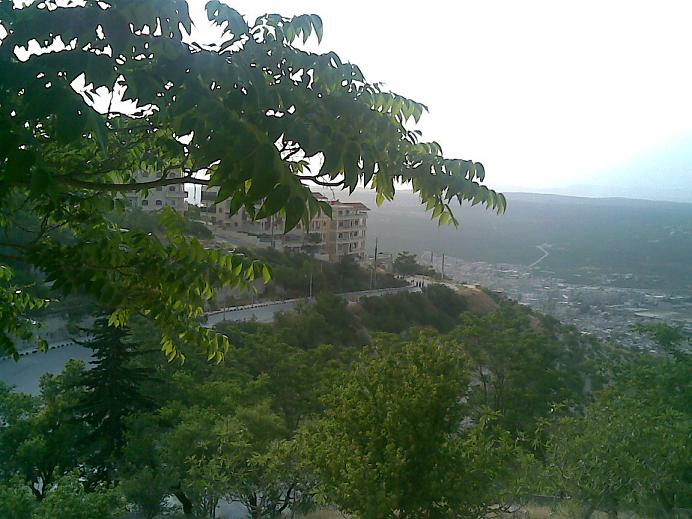News
UN: World’s biggest humanitarian crisis in Syria northwest

FILE: Typical view of a field in the valleys surrounding Idlib. (Photo by Jamen Schahoud at the English language Wikipedia, CC BY-SA 3.0)
TANZANIA, Tanzania — The top U.N. humanitarian official for Syria said Tuesday the crisis in northwest Idlib where nearly one million people have fled to avoid escalating hostilities is “probably the biggest crisis we have in the world today.”
Kevin Kennedy said that despite a massive relief operation, the needs are overwhelming and “we have a long, long way to go.”
He said in a video briefing from the region that he got a first-hand look at the situation on Monday along with representatives from six U.N. agencies who visited a camp about seven kilometres inside Syria.
Kennedy said they saw the massive needs and “the trauma that these people are living in — the newly displaced or (those) there for some time.”
Although the camp was established three years ago and was fairly well supported by several non-governmental organizations and the Turkish Red Crescent, Kennedy said, “conditions there were very, very difficult — the sanitation, the shelter, the health facilities were not available.”
He said about 30 per cent of the nearly 8,000 people there were new arrivals.
“What was really striking was you could stand there and look out at the hills surrounding this camp and there were thousands of people clustered — not in camps, (but) with individual tents, or many without tents, living under trees or just out in the open — and it gives you a real feel for the full dimensions of this crisis and the enormous human need,” Kennedy said.
He said the other striking thing is that over half the nearly one million displaced people — probably 600,000 — are children, who are caught in a very barren landscape in austere conditions, with little to do and very little education available, “and are just sitting there hoping something will happen.”
Kennedy, the U.N. regional humanitarian co-ordinator for the Syria crisis, said women colleagues on Monday’s mission spent time talking to displaced women, many of them widows.
He said they told him “some people were so desolate, in despair, they couldn’t say a word.”
“They just sat in these individual tents, and just were speechless, and these were Arab speakers so it wasn’t a question of language, it was just a question of giving up,” he said.
Kennedy said he thought the U.N. mission “gave at least a small signal of hope to people that amidst this crisis the UN is there.”
The U.N. representatives also visited Bab al-Hawa hospital, one of the three major hospitals in Idlib, he said.
Kennedy said doctors told him that in the first 10 days of February “they received the number of trauma cases that they normally receive in a month’s time, and most of those were people — many women and children, who had been struck by high explosive things.” He praised Turkey for also treating many of the victims.
Last week, the U.N. appealed for $500 million for the humanitarian crisis in northwest Syria.
On Tuesday, U.S. Ambassador Kelly Craft, who was visiting one of the two Turkish crossing points for aid deliveries into Syria, announced that the Trump administration was giving an additional $108 million in humanitarian aid to Syria. Kennedy also welcomed the United Kingdom’s announcement Tuesday of an additional 89 million pounds.
U.N. humanitarian chief Mark Lowcock said in a statement from near the Turkish border that an estimated 2.8 million people in northwest Syria need humanitarian aid and with $500 million “we will be able to reach 1.1 million of the most vulnerable.” So far, he said, more than $300 million has been received or pledged by donors.





















